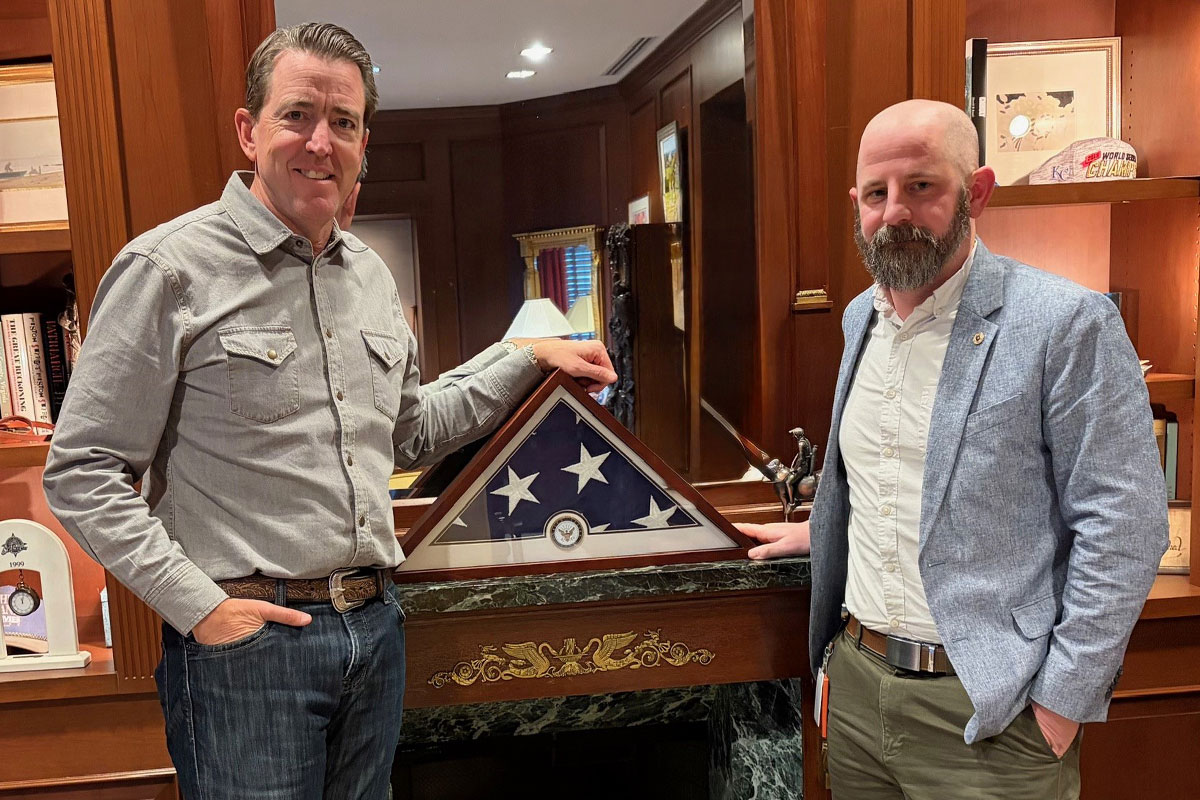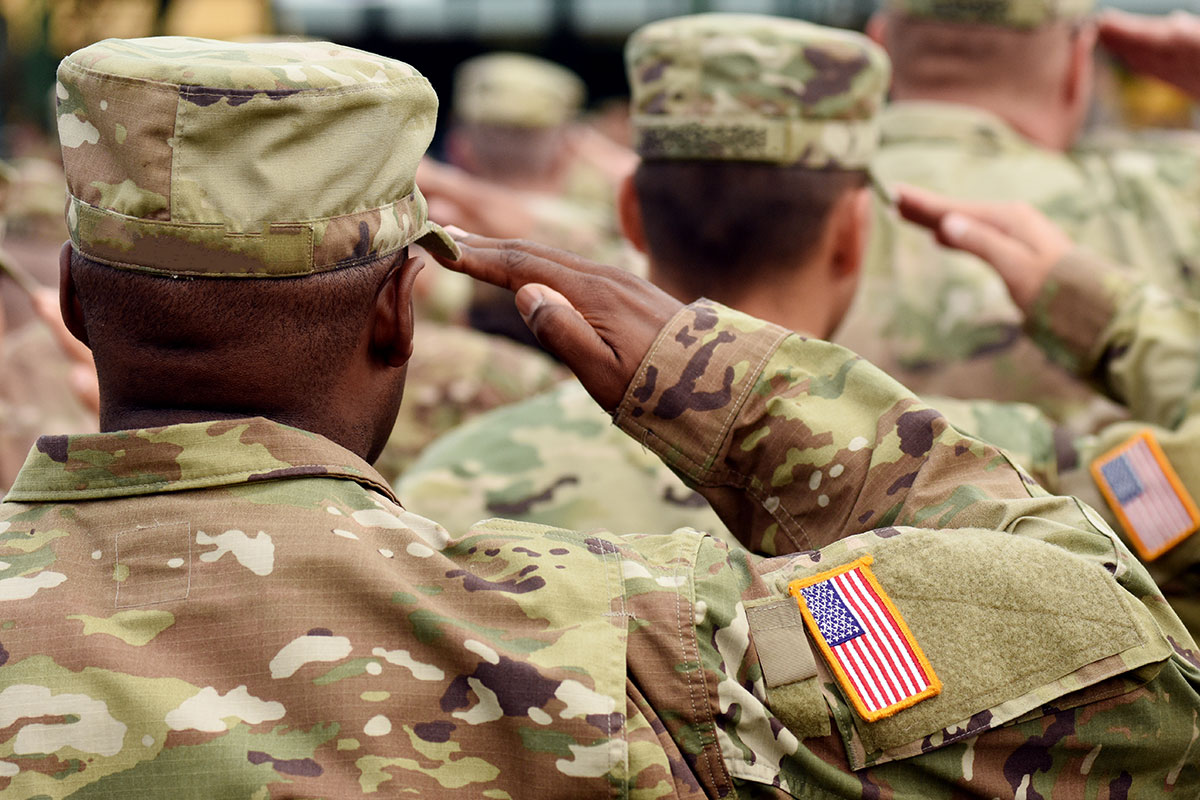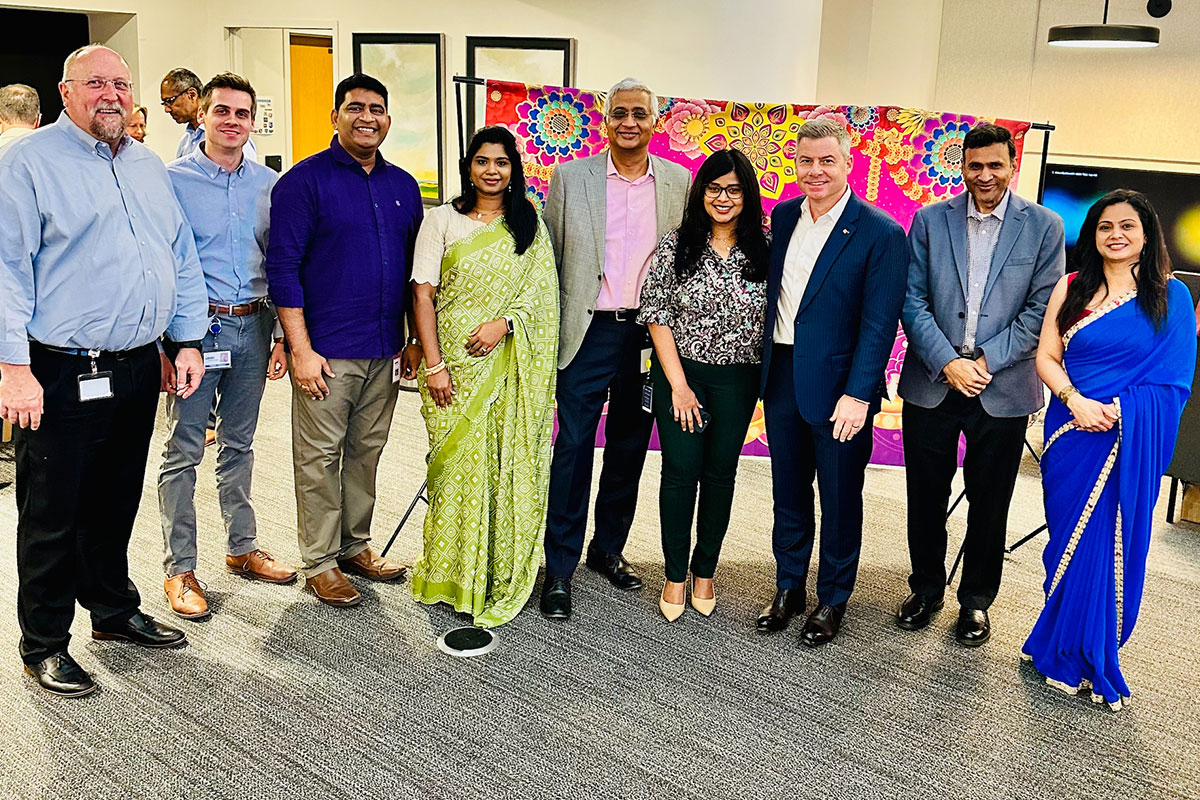Ahead of Veterans Day, I wanted to hear from some of UMB’s associates who spent time serving our country. I was lucky to have the opportunity for a one-on-one conversation with Chris Moore, senior risk analyst in UMB’s information security and privacy department. Chris served the U.S. as a Navy cryptologist who was deployed abroad and served in the Middle East.
I thoroughly enjoyed my conversation with him and look forward to meeting and engaging with more of UMB’s veterans. For this Veterans Day, my goal is to find ways to serve others in honor of those who serve us every day. I hope you will join me in this effort.
And to veterans everywhere: Thank you for your service and the example you set for us all.
A conversation with Chris Moore
What led you to military service?
Chris: Like a lot of people, I wasn’t sure what I wanted to do in life or where I was going. I had done a lot of fun and interesting things, but didn’t have a long-term plan. I wanted to do something that was unique and impactful and had service involved in it.
I worked in some roles in Northwest Arkansas with impoverished youth and families at risk and really enjoyed doing that, but knew I couldn’t do it forever. At that time, I was also helping with a wrestling program in Springdale, and the coach was a former Navy SEAL. After several conversations, he said if I wanted to do something awesome, have a lot of unique experiences, and make an impact, I should look at the military.
I took his advice and went into a recruiter’s office and took the Armed Services Vocational Aptitude Battery (ASVAB) test. My results were strong across the board, but I had real interest in special warfare and cryptology. After some additional testing, I became a Navy cryptologist.
What did your service look like?
Chris: I started with boot camp, and then spent a year in Monterrey, California, where I learned Arabic, specifically the Iraqi dialect, and then started my journey in the secret world of the military. While I have a lot of amazing stories, I also have a mostly secret and classified level of military history, so I can’t share all the really cool experiences.
I can share this one as an example, though. Remember when you first started having to take your laptop out for security at the airport? I know when and why that started; it was in response to a specific case I was working at the time. When everyone was asking, “What’s going on? Why are we doing these things?” my team and I were silently sitting back knowing the reasons behind it. Wild stuff like that happened daily.
What was that like?
Chris: It was an exciting world to live in, but it could also be lonely. I had all this inside information, which made it very difficult to talk about anything.
That said, my military service was the best experience I’ll probably ever have—because of what I was doing, but also because it fulfilled all those things I felt I had been lacking in life, such as discipline, focus and purpose.
What are some of the best takeaways from your service?
Chris: One of the things I’m extremely proud of is the way I took care of the people that worked for me — and continue to care. I have a dear friend who is still on active duty for the Air Force, and I talk to him several days a week. He started out as a guy who didn’t know what he was doing, where he was going and wasn’t really excited about the mission or what he was going to be doing.
I had the opportunity to mentor him and discovered things just weren’t structured in a way that enabled him to focus, so we worked on that. He went on to work as a liaison officer at another intelligence agency, making major contributions to some of the nation’s top priority missions.
Where do you think you found that within yourself? To be a leader like that? To grab hold of someone and help bring them up?
Chris: I think it’s something that I’ve always had within me. Before the military, I didn’t have many opportunities to be a leader. However, when I joined the service, I quickly learned there were two options: you could either lead or follow. And I have never wanted to be a follower.
I never liked being given orders or being told what to do, so I subconsciously decided to excel as quickly as possible to the point where people couldn’t give me orders. The options were either being promoted or being so good at my job that people couldn’t tell me what to do. That afforded me the opportunity to lead and teach others, and I loved it
What does Veterans Day mean to you?
Chris: Veterans Day celebrates those who have served our country, who have raised their hand and pledged the oath to potentially make the ultimate sacrifice.
However, for me, Veterans Day is the opportunity to get together with other veterans. I loved what I did in the military—even deploying. I loved seeing and doing wild, unique things, but I have a family, and I couldn’t do that forever.
What I miss the most is the camaraderie and being around other like-minded individuals, so I look forward to recreating that on Veterans Day.
I’ve been eyeing the pin on your lapel. Can you share what that is?
Chris: It’s the Counter Terrorism National Meritorious Unit Award. It can be awarded for a lot of different things. I was given this for being part of the team responsible for removing a high-level security threat.
What are some of the inspirational things you’ve seen?
Chris: In my travels, I’ve seen massive amounts of poverty—cities that have existed for thousands of years that are now rubble. The erasure of history is terrible. But amidst that, I have also seen people who find immense joy in the smallest things—beautiful people who are extremely hospitable.
I spent a lot of time in Kurdistan, and the hospitality that was extended to us with only hand gestures and limited Arabic or English was amazing. You think you’re 5,000 miles from home and people are completely different than you, but they will show you that everyone’s a human.
One time, I was at this market, and this kid came up to me with a box of banana stick gum. He said, “Sir, Sir, Sir,” and stuck out this box of yellow gum. He held up his hand asking for $5, but all I had was a $20 bill, so I gave it to him. He gave me a pack of gum and ran back to his dad, starting to jump up and down—he was so excited. His dad motioned him back to me, and he tried to give me the whole box of gum, but I gave that back. That money meant nothing to me, but it meant everything to him.
Can you share how you found UMB?
Chris: We had been looking to move here to be closer to family. After my wife found a job at HNTB, I started looking at jobs and networking. I was actually interviewing somewhere else when the risk data analyst showed up in my feed. I applied for that and another position, and I started shortly after.
How did you find the Veterans BRG?
Chris: I didn’t really have a community here in Kansas City, so my first question when I joined UMB was, “How do I meet people?” My sister, Amy (Harris) also works here, and she suggested the BRGs, so I checked out the Veterans BRG. Shortly after I joined, the chair announced she was leaving, so I applied to be a leader and got involved.
Is there anything about the Veterans BRG you’d like to share with others?
Chris: To all the veterans—come see us! If anyone has questions, please call me anytime. I’d love to have all veterans at UMB join us. Building on the camaraderie I mentioned earlier, we’re looking to cultivate and foster it, and we would love for you to be part of it.
Last question: if you could go back and give that kid who walked into the recruiter’s office any advice, what would it be?
Chris: Don’t change a thing.
Stay informed on industry trends and noteworthy company news by visiting our Industry News section on umb.com. Follow UMB on Facebook‡ and LinkedIn‡ to see regular updates about our company, people and timely financial perspectives.





